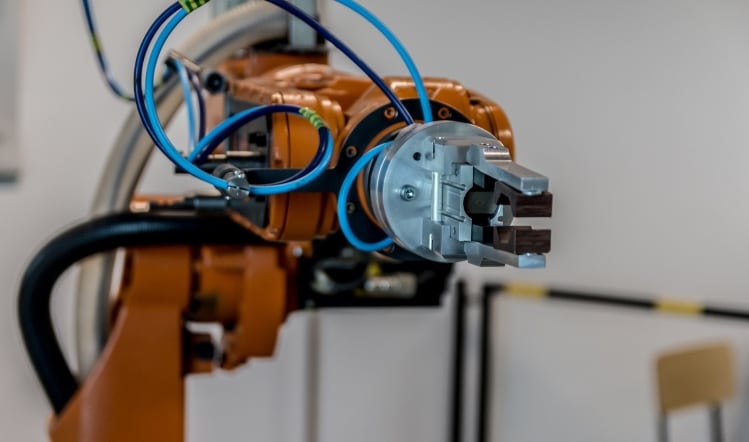Keynote speaker at the City Food Lecture, which took place at London's Guildhall on 26 February, Blakemore said: "If we try to look ahead, arguably the next big technological advancement for society and food will be augmented reality. Consumers will get projected 360-degree visualisations of food right in front of their eyes.
"From choosing meals from a menu to home cooking, to ingredient information to portion sizes, calorie and nutrition info, it will be all visual and most likely audio."
Artificial intelligence could be used to create a 'digital self' that would understand our general preferences and how these change and could predict our dietary choices days in advance. "Most likely, all of our medical and dietary information will be programmed along with our taste preferences so our digital self is likely to deal with any food related decisions based on multiple data inputs. Amazon's Alexa is already capturing preference data just by listening.
3D printing
"3D printing will also infiltrate the food industry in a more pervasive way. If it can be pureed, it can be printed. Perhaps we'll use food robots that download recipes and 3D print our meals from cartridges of ingredients."
Drones would increasingly be used for food delivery, said Blakemore, citing the fact that IBM had patented a coffee delivering drone in August 2018.
He cited several other ways in which technology was already being used in innovative ways to further sustainable food production.
Grain trader and meat packer Cargill was investing in Memphis Meat, a start-up developing beef, chicken and duck grown directly from animal cells, and Puris, which makes organic protein from peas and other vegetables.
Edenworks
New York-based urban farm Edenworks had developed a complete aquaponic ecosystem producing leafy vegetables and aquaculture. "Waste from the tilapia fish is used as a natural and potent fertiliser for the microgreens planted on vertically-stacked power racks.
"They are able to harvest, package and reach consumers within 24 hours by cutting down on transport and prioritising quality over durability. The greens are also 40% more nutrient dense than traditional produce."
Closer to home, Compass' sports and leisure brand Levy was using a robotic burger flipper in sports stadiums in the US, freeing up staff to be more consumer-facing, said Blakemore.
Such technologies offered a lot of promise, but also raised challenges surrounding responsible use of data and food safety, he said.
Other big challenges for the food industry in the next 30 years included maintaining and building consumer trust through increased transparency and helping people eat healthily amid the twin global challenges of obesity and malnutrition.




